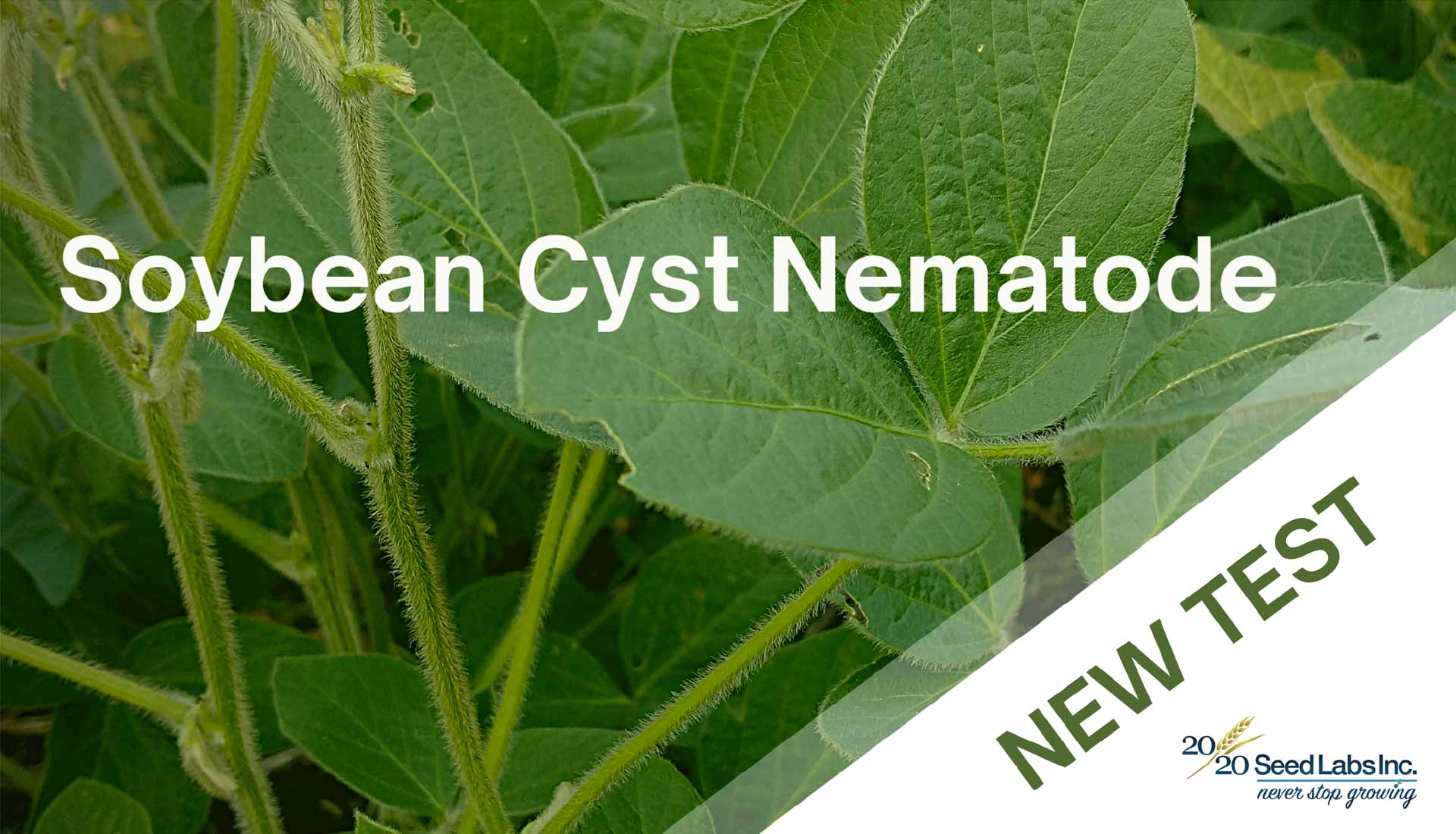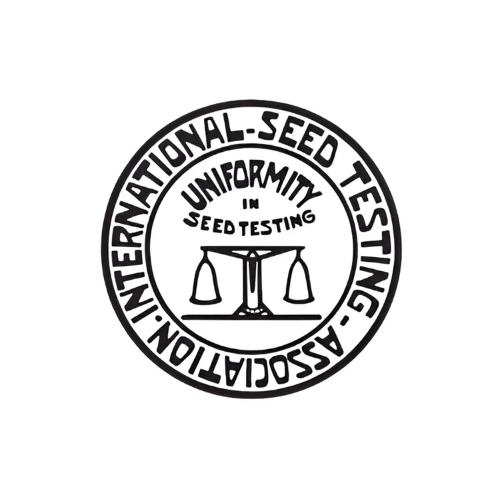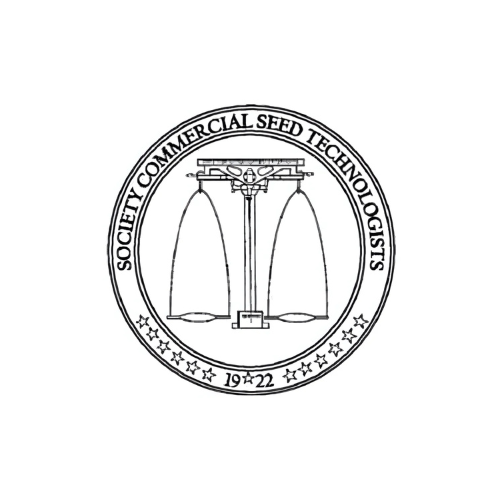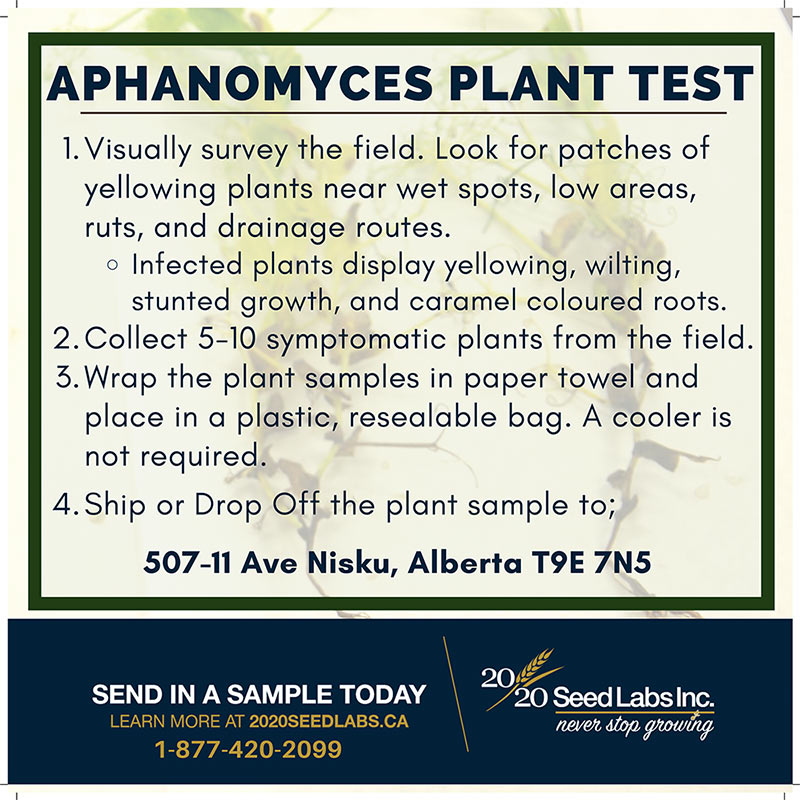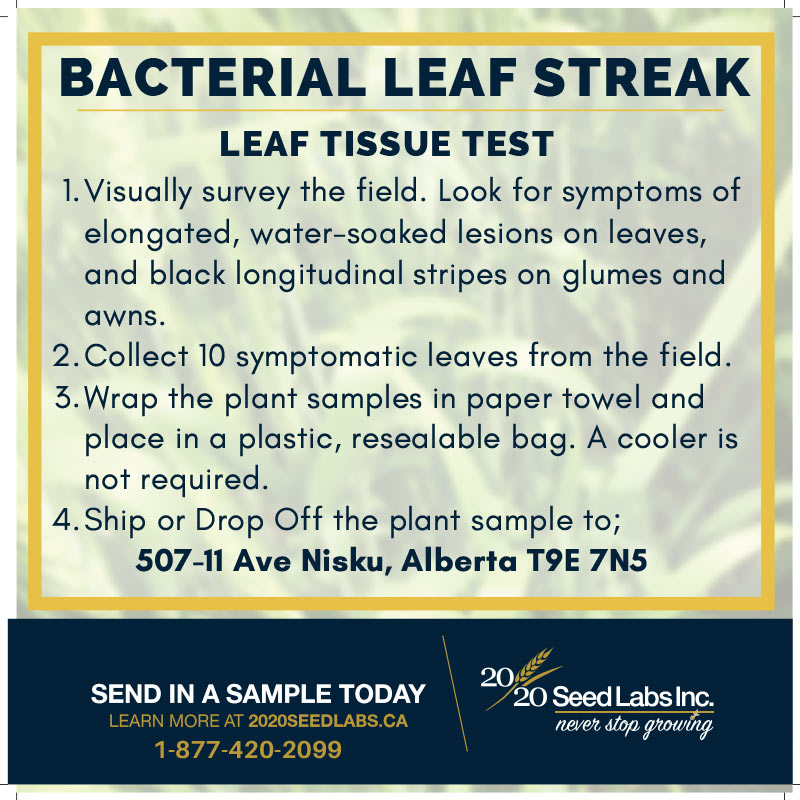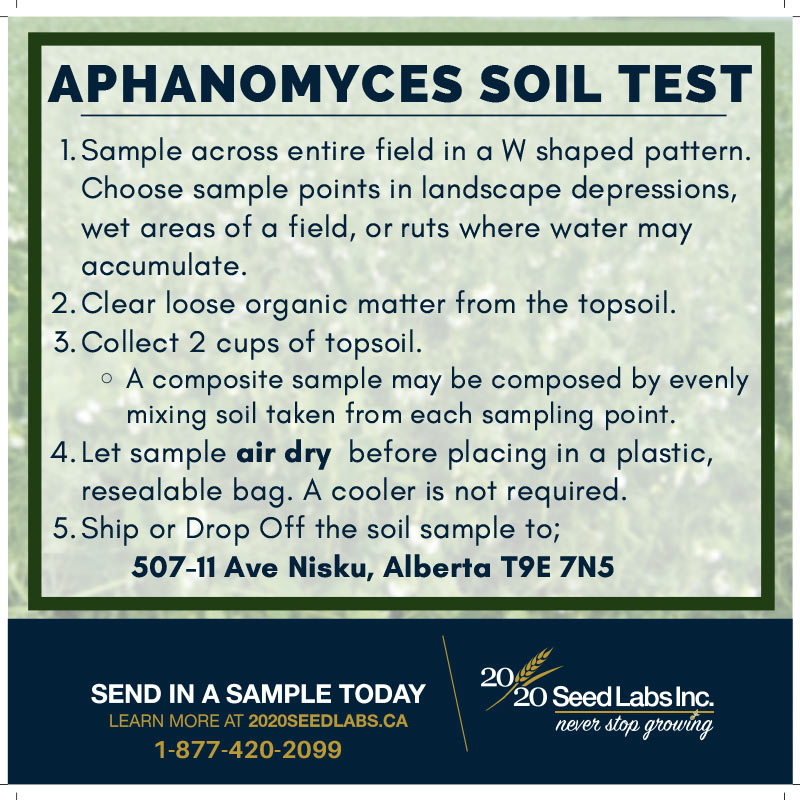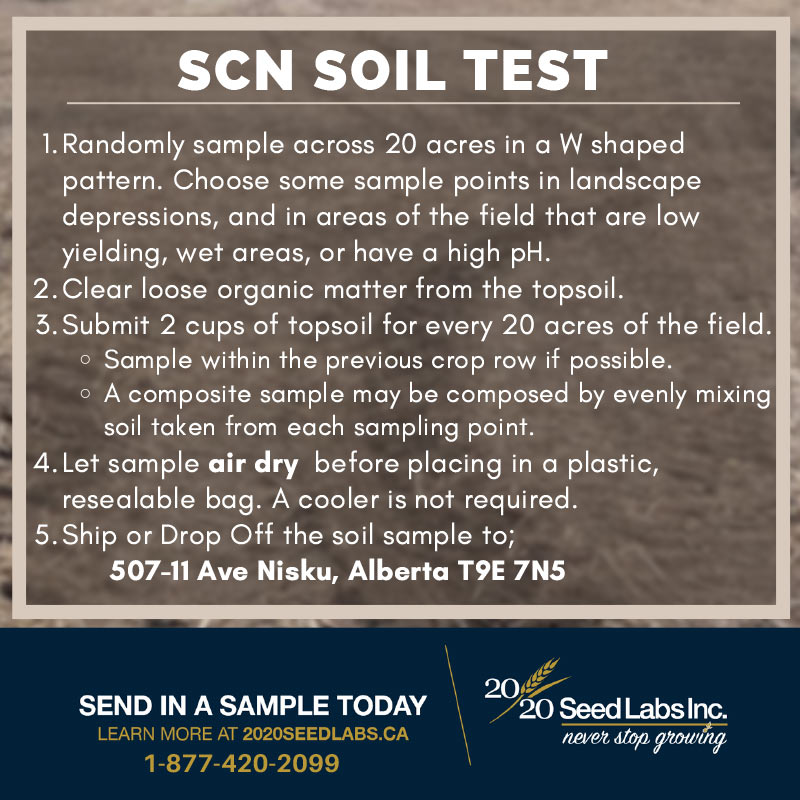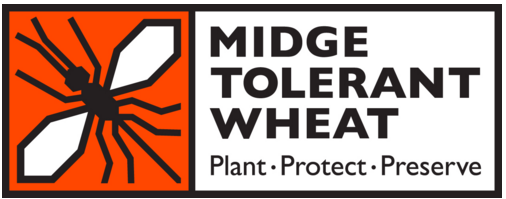Soybean Cyst Nematode (SCN) is a type of nematode that is parasitic to soybeans. SCNs create small white cysts on the soybean root that inhibit nitrogen fixation which restricts the plant’s ability to uptake nutrients. As well, openings in the root from the cysts increases the chance of root rot, sudden death syndrome, and a variety of seedling diseases. Once above-ground symptoms of SCN are noticed, up to 30% yield loss can already be expected (Manitoba Pulse and Soybean Growers, 2019).
Soil and Plant Testing for Early Detection
Early detection is key to preventing and controlling SCN spread in fields across Canada and in the United States. Once SCN has been confirmed in a field, it can never be eradicated.
View the plant and soil testing cards below on how to submit a sample to the lab for SCN testing.
Testing for SCN is one part in an integrated disease management plan for preventing and controlling the risk and spread of SCN. Other management activities include a healthy crop rotation with 3 to 4 years between host crops, field scouting, using SCN resistant soybean varieties, and applying insecticides if necessary.
If you have any questions on sampling and testing for Soybean Cyst Nematode, please reach the lab at:
Support@2020seedlabs.ca
Toll Free: 1-877-420-2099
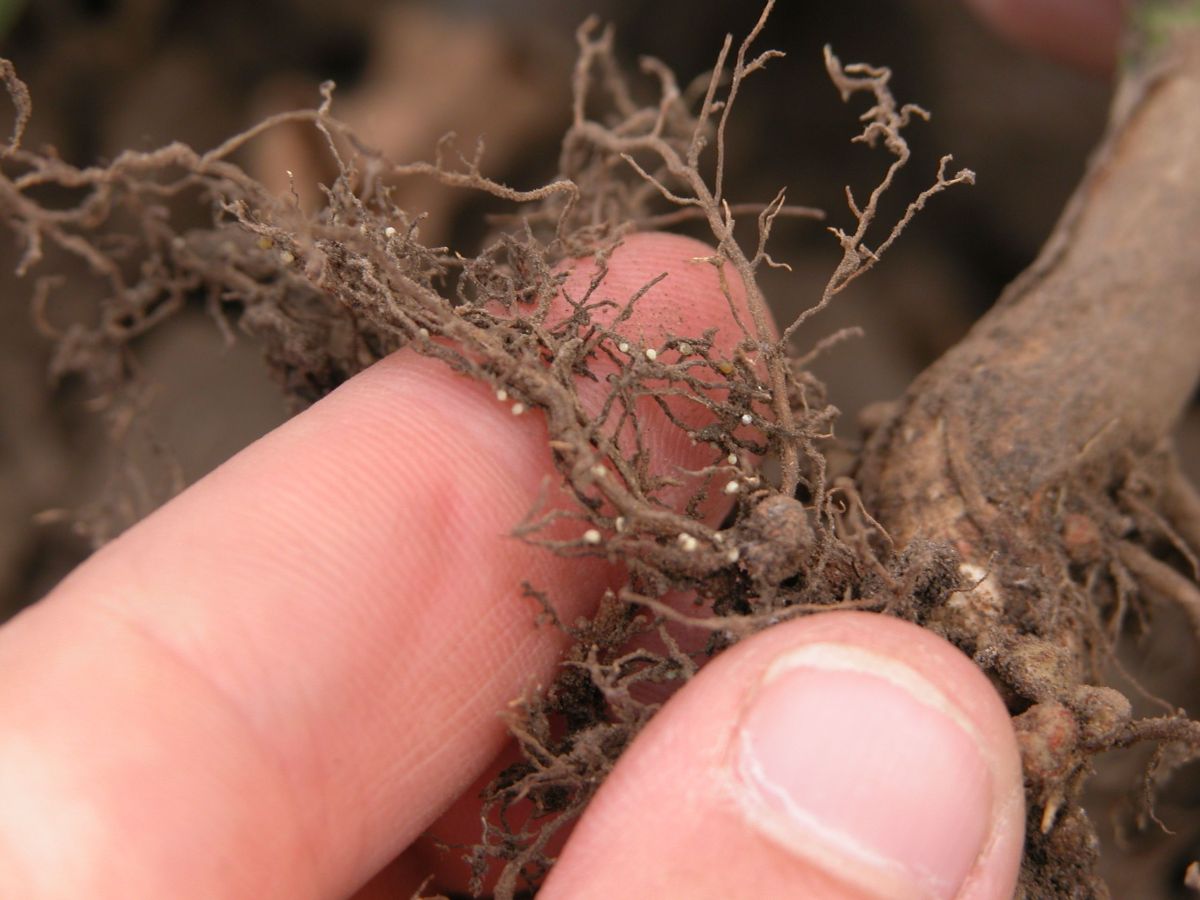
Soybean cyst nematode females (white specks) on soybean roots. Image: C. Grau. Source: “Soybean Cyst Nematode of Soybean.” Crop Protection Network, cropprotectionnetwork.org/resources/articles/diseases/soybean-cyst-nematode-of-soybean.
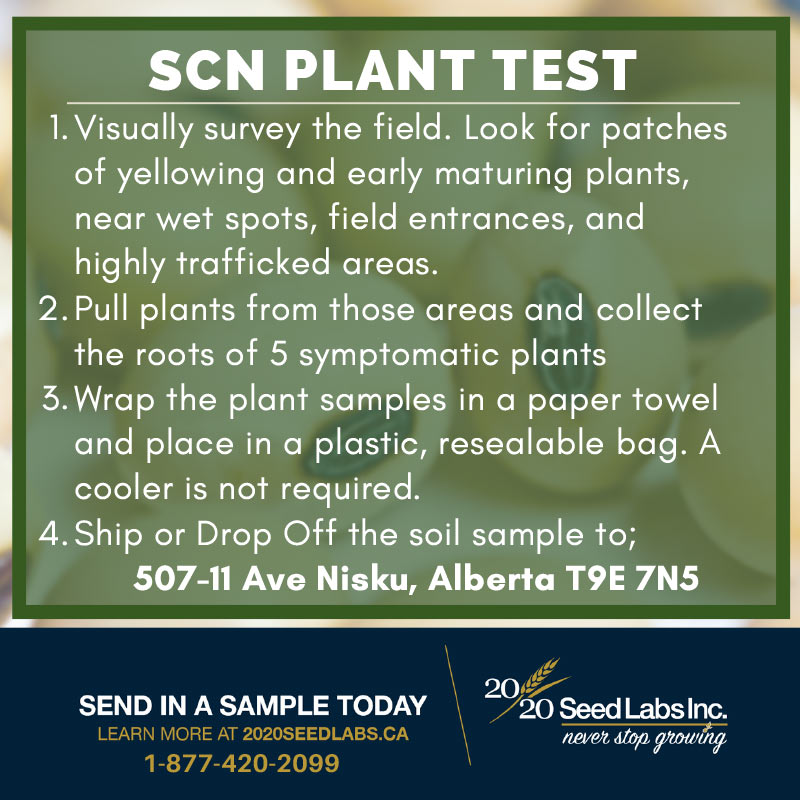



References
Manitoba Pulse and Soybean Growers (MP & SG). Soybean Cyst Nematode. 2019. https://www.manitobapulse.ca/2019/03/soybean-cyst-nematode/ .

